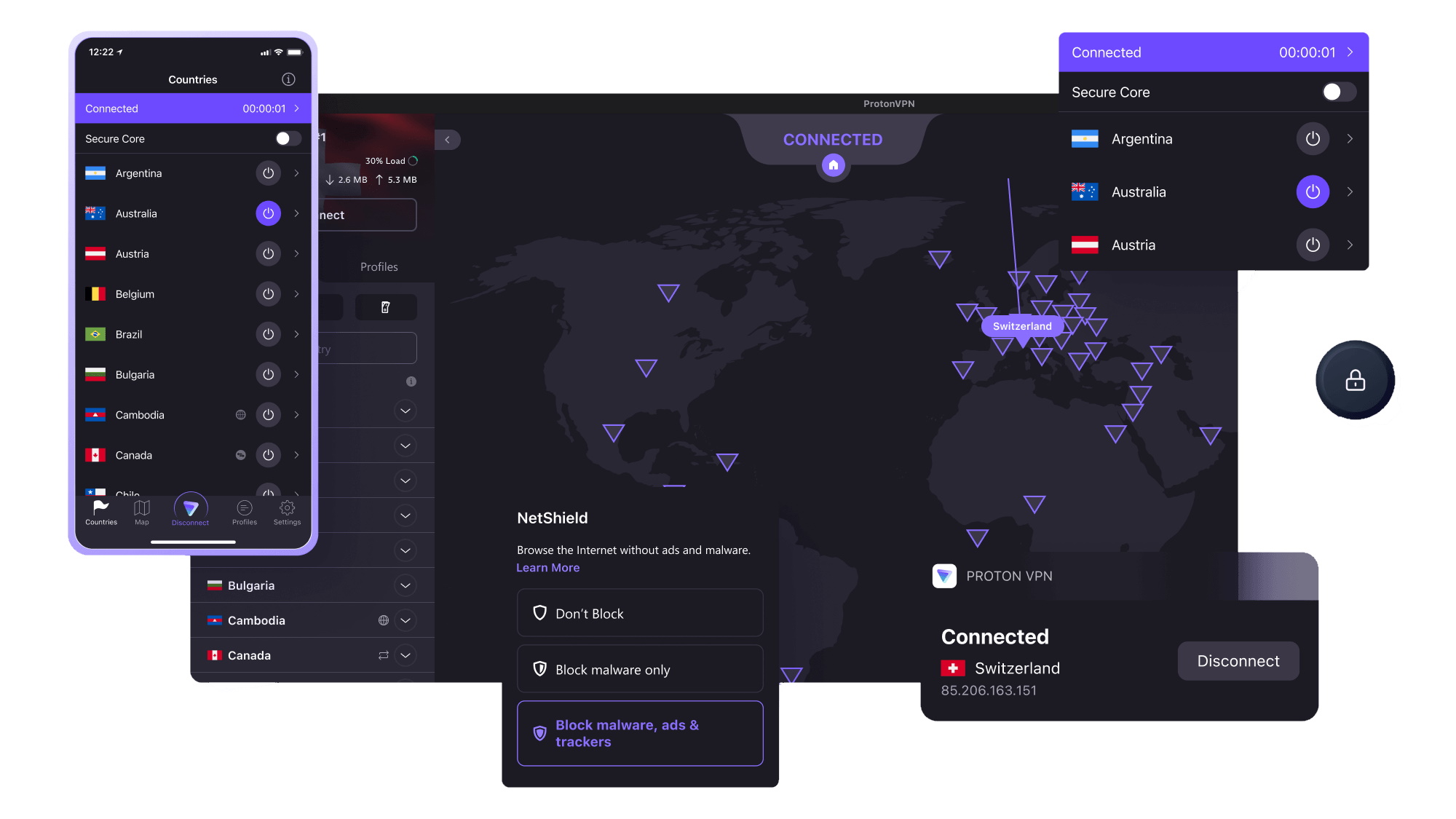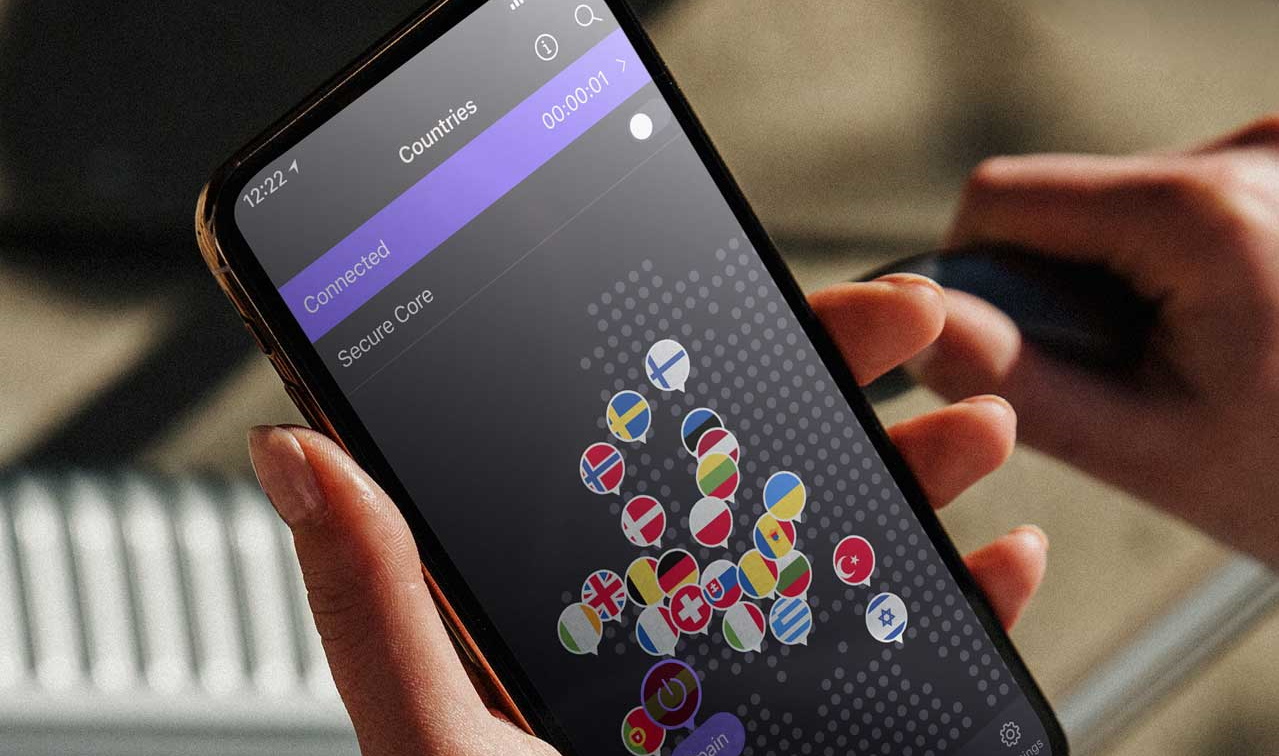Proton VPN Secure Core: what it is and when you should use it
A unique VPN feature to boost your data protection

One of the best VPN providers on the market, the Swiss-based Proton VPN naturally keeps the security and privacy of its users' data very seriously.
In addition to the recent release of its brand new Proton security bundle, the company's VPN service is packed with security-focused features, too. One of the most interesting and unique is its Secure Core option.
Here, we break down everything you need to know about it: from how Proton VPN Secure Core works in practice, its benefits and disadvantages to the specific situations for which you should consider to opt for this option.
What is Proton VPN Secure Core?
Proton VPN Secure Core is a technology that reroutes your VPN traffic via an extra secure server, before connecting you to a second server location of your choice.
Put it simply, if you connect to one of its Secure Core servers dotted across 60+ countries, your traffic will first pass through one of its servers based in some of the most privacy-friendly nations. These are Switzerland, Iceland and Sweden.
For example, are you in the UK and want to connect to a server in India? If you opt for a Secure Core server, your VPN traffic will move like this:
UK > Switzerland > India
Enabling this option is really simple. Open your Proton VPN app and turn on the Secure Core option - on Windows, macOS and Linux you will see a padlock icon, while on your Android VPN and iPhone VPN version you will see a Secure Core switch to toggle on. After that, you only need to choose your desired location and start browsing with an extra secure layer.

Which are the benefits of Secure Core?
The way Secure Core servers work brings two main advantages to Proton users: better privacy and stronger security.
The double encryption will make your connection less vulnerable to network-based attacks. In fact, even in case the server got compromised, the extra step within your VPN traffic journey will make it more difficult to trace back your real IP address.
There will be no links between your device and the end server so that your anonymity will be better preserved, meaning that your data privacy protection will increase.
Your information traveling through an extra server also means that Secure Core increases the security of your data in transit. Plus, as Proton is the direct owner of these servers, your data security will benefit as the provider is the only entity handling your data.
And it's not just online threats; Proton technology seeks to minimize physical threats, too. Beside being located in countries where strong privacy laws are in place, the Secure Core network is placed in high-security data centers to also ensure a stronger physical protection.
Even though it's quite unlikely for those centers to get seized or physically compromised, this feature clearly demonstrates Proton's effort and commitment to protect the data of its subscribers.
And the disadvantages?
There are also a few downsides to consider before starting to use the Secure Core technology.
First of all, if double encryption is good for data protection, it's not possible to say the same for speed performances. As your VPN traffic will take a longer detour between the server and your device, this may translate to a drop in connection speeds.
Also, among the more than 1,700 server locations that Proton offers, Secure Core is available for just a few of those. This means that many users might not be able to enjoy this feature.
Finally, Secure Core servers are available for paid subscribers only - this isn't something you can use if you're only on Proton's market-leading free VPN. (However, this isn't the only additional feature only accessible to those with a Plus plan. Others benefits are its streaming VPN and torrenting VPN power, ad blocker software and the possibility of using the Tor browser over its VPN service.)
When should I use Proton VPN Secure Core?
Having this extra layer of security might come handy for people connected from high-risk locations. This feature therefore makes Proton a really good option for anybody that's after a secure Turkey VPN or UAE VPN, for example, as these governments are notorious for actively monitoring internet connections.
As the Proton team explains in a blog post: "Even though Proton VPN is based in Switzerland, we cannot be certain that authorities are not monitoring our VPN servers located in those high-risk countries."
Secure Core servers are also a valuable feature for users who carry on sensitive activities online, like journalists, activists or whoever else is greatly concerned about their data protection.
What about other providers?
Even though Proton Secure Core is a quite unusual technology across the industry, there are a few of the most secure VPN services that use double encryption to ensure better privacy and security to their users.
Another top provider, NordVPN offers a Double VPN option for example. Similarly, one of the best cheap VPNs around Surfshark has a MultiHop feature that reroutes the traffic via two servers to boost online security.
Sign up to the TechRadar Pro newsletter to get all the top news, opinion, features and guidance your business needs to succeed!

Chiara is a multimedia journalist committed to covering stories to help promote the rights and denounce the abuses of the digital side of life – wherever cybersecurity, markets, and politics tangle up. She believes an open, uncensored, and private internet is a basic human need and wants to use her knowledge of VPNs to help readers take back control. She writes news, interviews, and analysis on data privacy, online censorship, digital rights, tech policies, and security software, with a special focus on VPNs, for TechRadar and TechRadar Pro. Got a story, tip-off, or something tech-interesting to say? Reach out to chiara.castro@futurenet.com